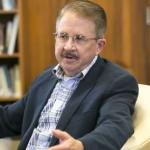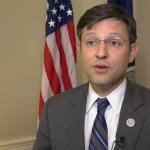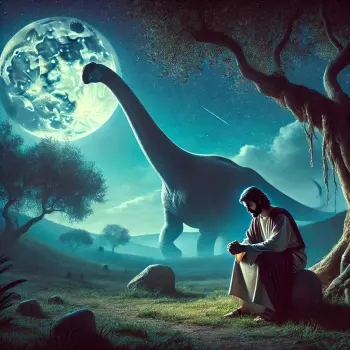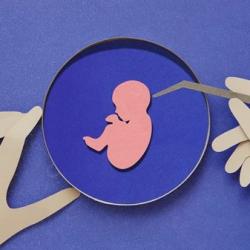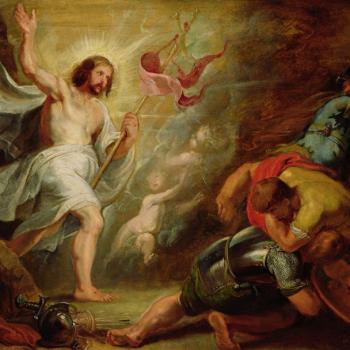Big History and Progressive Christianity: Thomas Lindell
Big History and Progressive Christianity. Any connection?
A number of scholars from a variety of fields have weighed in on my Patheos series dealing with Big History. One is Progressive Christian Thomas Lindell. Let’s tease out what The Rev. Dr. Prof. Lindell has to say about the connection between Big History and Progressive Christianity.
Meet Thomas Lindell

Thomas J. Lindell is an emeritus professor of Molecular and Cellular Biology at the University of Arizona. He is also a deacon in the Episcopal Church serving St. Philip’s in the Hills parish in Tucson since 2000. While active as a professor, he taught two courses that were intended to invite students to think about bioethics (not medical ethics), science, religion, and theology.
Tom critically embraces both Big History and Progressive Christianity.
Question 1. Tom, one of the pioneers in Big History is David G. Christian at Macquarie University in Australia. He rejects ancient creation myths as untrue. So he substitutes belief in the story of the Big Bang told by science. He states: the “modern origin story lacks a creator god…the modern story is about a universe that just is. Any sense of meaning comes not from the universe, but from us humans” (Christian 2018, 9). Would you affirm or critique this approach?

Tom Lindell. I would both affirm and critique. I do not simply reject myth out of hand. Myths are stories that are not intended to be read literally. Myths contain truisms. But when read literally, we kill the myth’s message. Myths are stories meant to be read as stories.
This opens up a bigger question about how we should read the Bible. I view the Bible as a collection of stories that demand interpretation, rather than literally.
My critique of big historians is that they are hiding behind non-theism as a means for removing God from their picture of history. My thesis: God is, however, ineffable and cannot be defined. God simply loved the creation into existence and let it be without any intervention.
I can personally identify with the non-theist position given types of theism that seek to define God.
Question 2. Big historians frame the creation of earth and the appearance of life within the theory of evolution. This requires deep time, perhaps 13.8 billion years of cosmic history. Would you affirm or critique this approach?
Tom Lindell. I affirm this approach. Per your framed question, BH must begin at the Big Bang. Evolution only began after the formation of our solar system about 9 billion years after the Big Bang. Conditions for life’s evolution could not exist until heavy elements became available. That was after supernovas provided those essential heavy elements. The message of evolution is clear to me and to other scientists: there was no divine intervention in privileging life on Planet Earth. There certainly was no intelligent design.
Question 3. How do you believe we should interpret ancient myths of origin? Should we read them literally? Non-literally? Symbolically? Can an ancient creation myth speak meaningfully to us today while we live in a scientific worldview?

Tom Lindell. I do not advocate demythologizing per Rudolf Bultmann. However, I go back to the myths of origin as stories our ancestors told to each other to offer explanations for how things came about. These myths simply do not work in today’s scientific worldview. For example, the Hebrew cosmology in Genesis 1 made sense to the authors but is totally untenable today. In addition, the birth narratives in the Gospels of Matthew and Luke beg the question: who was there to record them? Was this not myth-making to fill in the missing elements of what we only know as a birth with no details? All we know for certain is that there was a birth. Mythical stories can only be read non-literally,
Question 4. In one of your online publications — Thomas Lindell, “A New Year, A New Beginning” – you say this: “Having come from that singularity in space-time at the Big Bang, we share an interconnection with everything in the universe. These acknowledgments offer a meaningful eco-theology of nature.” Please explain.
Tom Lindell. What you cited, Ted, is incomplete. I was proposing an eco-theology based around both of our speculations surrounding the Big Bang and biological evolution. This cosmology reveals that we humans are in intimate connection with everything in the universe because we all came from that singularity in space-time.
From evolution we intuit that we are in relationship with everything organism that ever lived long enough to reproduce. Hence my interpretation of a beautiful eco-theology of interconnectedness and interrelationship with the universal creation.
Question 5. Do you believe God is the creator of the cosmos, literally speaking?
Tom Lindell. I am unable to refer to God as the literal creator. Can I prove it? No. Can anyone? Can I live with it? Yes. This is my starting point to do theology.
Question 6: What else would you like to say about Big History and Progressive Christianity?
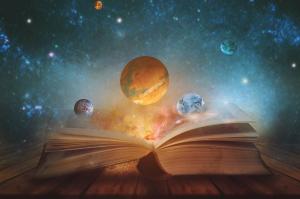
Tom Lindell. Throughout my teaching career at the University of Arizona, it has been my agenda to invite students and other audiences to enter into the questions. I make it very clear that I do not have all the answers. I can only present a thesis that I have come to understand over the years.
My job as a teacher is to simply cast the seeds, as Jesus said in my favorite Parable of the Sower. Living in the Arizona desert, it is clear that seeds may not germinate until suitable conditions exist, and this can take years. Perhaps my former students will someday recall something said in class many years later.
Ya gotta hope!
Jesus’ Parable of the Sower also has a theological interpretation. God is the sower. However, what is sown is love, not literally seeds. In this sense, God is a one way kenotic gift.
I often ask: can we literally give anything directly back to God? I do not think so. However, if we understand that we have received this undeserved gift, our job is to give it away.
When visiting the interface of religion and science, religion seems to value certainty. As a result, religion has evolved ever so slowly! Science, however, thrives on uncertainty and change. My approach to this interface has been to view religion and theology through the “lens” of science. Science, therefore, offers a nuanced perspective on religion/theology. However, it is but another point of view that ought be not literalized.
Interpreting Ancient Myths and Modern Science
Tom does not read myths literally. But I wonder if Tom reads Big Bang cosmology and evolutionary biology literally.
I offer an observation. Myths have remained virtually unchanged for three millennia. Scientific theories change frequenyly. Big Bang cosmology is only a century old. Evolutionary biology is a century and a half old. What will happen to Tom’s “literal” reading of science when the science changes? Perhaps it too will evolve.
Big History and Progressive Christianity? Final Reflections
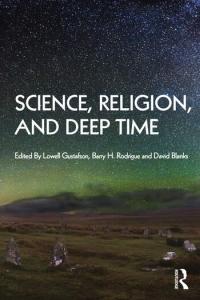
Progressive Christians routinely embrace and even celebrate the findings of modern science. Good. I’m glad about this. I do too.
The embracing of anything modern, however, alerts us that the foundations of our religious faith are premodern. Our religious roots are ancient, out of date. This awareness makes us wonder: should modern science add to our ancient religious beliefs? Or replace them? My fear is that Big History replaces them without remainder.
To treat scientific aspects of our world open-mindedly while reading premodern myths non-literally is what Tom does. I do too. But occasionally I wonder about the wisdom of treating science more literally than we do our inherited myths when asking the question: what does it all mean?
Patheos SR 5059 BH 9 Big History and Progressive Christianity: Thomas Lindell
To view the other posts in this Big History series, clik away.
Patheos SR 5051 BH 1 Science, Religion, and Deep Time
Patheos SR 5052 BH 2 Science and Religion in Big History
Patheos SR 5053 BH 3 Teilhard and Big History
Patheos SR 5054 BH 4 What is history in Big History?
Patheos SR 5055 BH 5 The God Question in Cosmic History
Patheos SR 5056 BH 6 Big History and Evangelical Theology: Roger Olson
Patheos SR 5058 BH 8 Big History, Religious Naturalism, and Ursula Goodenough
Patheos SR 5059 BH 9 Big History and Progressive Christianity: Thomas Lindell
Patheos SR 5060 BH 10 Critique of Ted Peters by Mitchell Diamond
▓
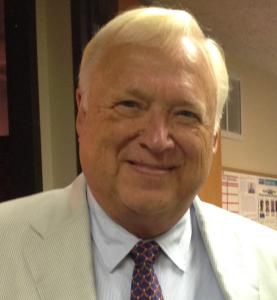
Ted Peters directs traffic at the intersection of science, religion, and ethics. Peters is an emeritus professor at the Graduate Theological Union, where he co-edits the journal, Theology and Science, with Robert John Russell on behalf of the Center for Theology and the Natural Sciences, in Berkeley, California, USA. He authored Playing God? Genetic Determinism and Human Freedom? (Routledge, 2nd ed., 2002) as well as Science, Theology, and Ethics (Ashgate 2003). Along with Martinez Hewlett, Joshua Moritz, and Robert John Russell, he co-edited, Astrotheology: Science and Theology Meet Extraterrestrial Intelligence (2018). Along with Octavio Chon Torres, Joseph Seckbach, and Russell Gordon, he co-edited, Astrobiology: Science, Ethics, and Public Policy (Scrivener 2021). Along with Arvin Gouw and Brian Patrick Green, he co-edited Religious Transhumanism and Its Critics (Lexington 2022). He is also author of UFOs: God’s Chariots? Spirituality, Ancient Aliens, and Religious Yearnings in the Age of Extraterrestrials (Career Press New Page Books, 2014). Look for his newest book, The Voice of Public Theology, a collection of previous articles. See his website: TedsTimelyTake.com.
▓



